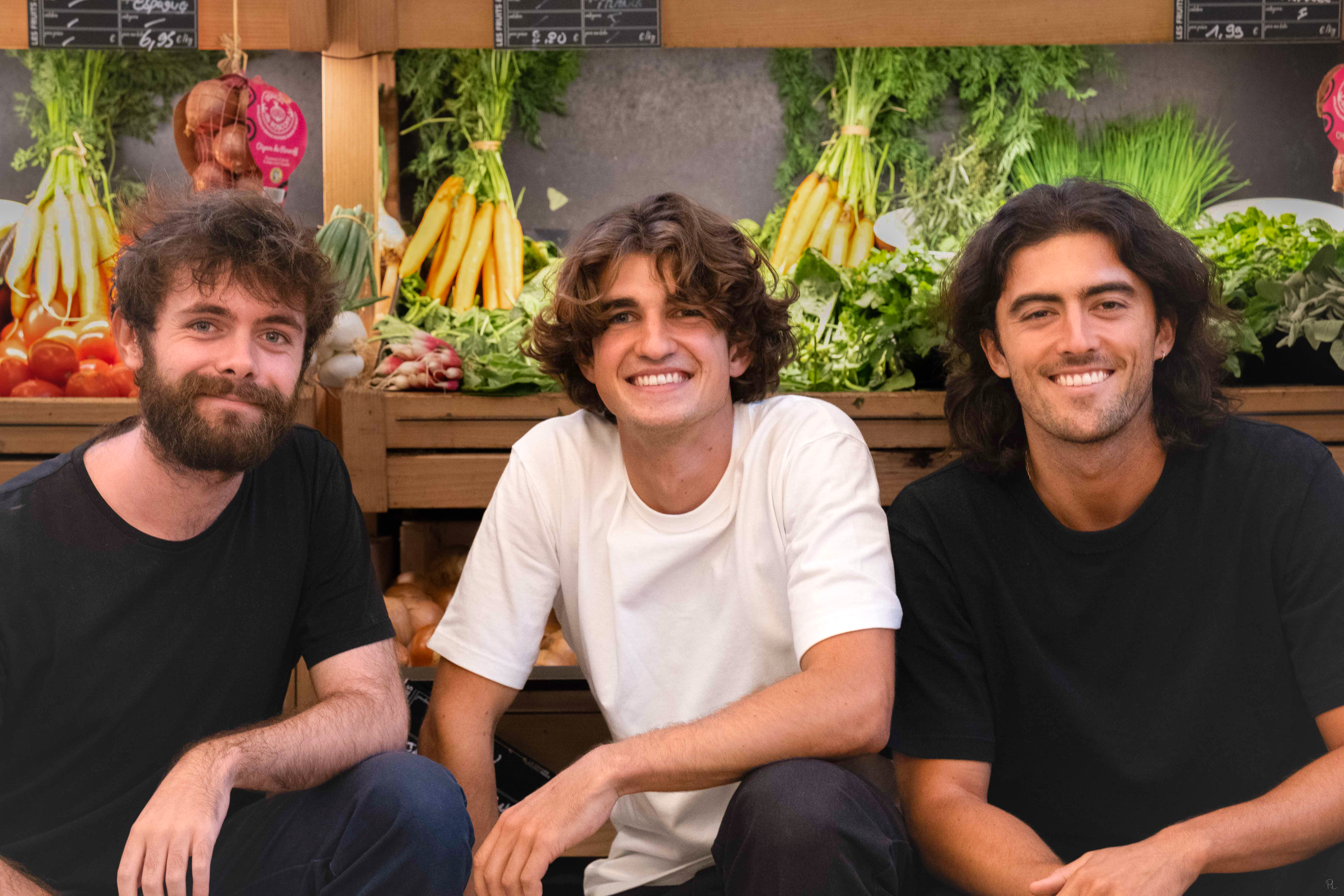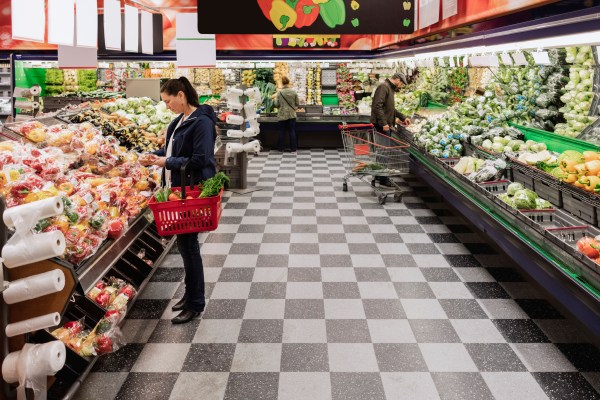Ida is a relatively new French startup that wants to work with supermarkets and grocery stores to optimize new orders of fresh products, such as fruits, vegetables, meat, poultry and fish. The startup recently raised a $2.9 million (€2.7 million) seed round from Frst, Daphni, Motier Ventures and Kima Ventures.
Right now, grocery stores mostly rely on order sheets with a large number of columns that represent the reordering schedule. These error-prone tables lead to both food waste and shortages. Supermarkets are either losing money or leaving potential revenue on the table.
“The person in charge of vegetables will take these sheets of paper and a pen. They’ll then go through the stock line by line, reference by reference. Then they’ll do some guesswork and say: ‘Ok, right now, I’ve got a good feeling about eggplants. The weather’s pretty nice today, so let’s go for four crates of two kilograms of eggplants,’” co-founder and CEO Mateo Beacco told me.
Of course, it isn’t 100% guesswork, as experienced people will look at past years to find some trends to guess if it’s time to order more strawberries. But there’s been more turnover in these jobs in recent years. Even for people who have been working in the same grocery store for years, it’s hard to be accurate every day.
That’s why Ida wants to change this process by giving the right tools to grocers. Ida is a tablet app connected to a sales forecasting algorithm that guides humans when it’s time to reorder some fresh products.
Ida is starting with vegetables and fruits, but it could soon expand to other shelves, such as meat and fish. By focusing on perishable goods, Ida is tackling an underserved part of the supermarket inventory as it’s quite easy to predict how many cereal boxes you have in your store thanks to bar codes and connected points of sales. Or, as Beacco put it, “SAP gives you a rolling average.”
Behind the scenes, Ida doesn’t just look at what happens at the points of sales because it doesn’t work well for vegetables and fruits. Instead, the company generates a probabilistic inventory that takes into consideration real-life scenarios.
“With a probabilistic inventory, my cucumber sales are mixed with my organic cucumber sales because when you buy organic cucumbers, the cashier will count them as non-organic cucumbers,” Beacco said. Another example, you can probably keep potatoes around for a while, but cherries go bad very quickly.
This way, instead of having to count how many cucumbers you currently have, Ida can give you a ballpark number of your cucumbers in your store. Of course, if something feels widely off, staff members can correct those inventory numbers.
Second, Ida takes into account more than a hundred different parameters combined with at least three years of sales data to forecast demand. Ida looks at weather conditions, seasonality, prices, other grocery stores in the area, special offers and more.
Third, Ida uses this forecasting data to generate your next orders. And stores can configure a safety stock so that they know for sure they’re not going to run out of a specific item (without over-ordering).
“As I mentioned earlier, you order eggplants in 2-kilogram crates. So we are facing a mathematical problem that’s optimization under constraint. I order by 2kg increments, my shelf contains 5kg, and we’re going to try to take all the data into account to say that we need four crates, and not three nor five,” Beacco said.
Ida doesn’t process orders on its own. Instead, staff members can review everything and change some things manually. Right now, the startup estimates that 70 to 75% of Ida’s suggestions are accurate and aren’t manually changed by grocers. Once this task is done, Ida generates order forms for the central purchasing office, but also potentially for local producers, as Ida can mix and match suppliers in its tablet app.
In many ways, Ida is just getting started. Other young startups are tackling this vertical, such as Guac in the U.S. It’s going to be interesting to see if grocery stores switch to these software solutions to manage fresh products at scale. But it seems like a no brainer for supermarkets to improve the bottom line and reduce their overall impact on the environment.

Image Credits: Ida
